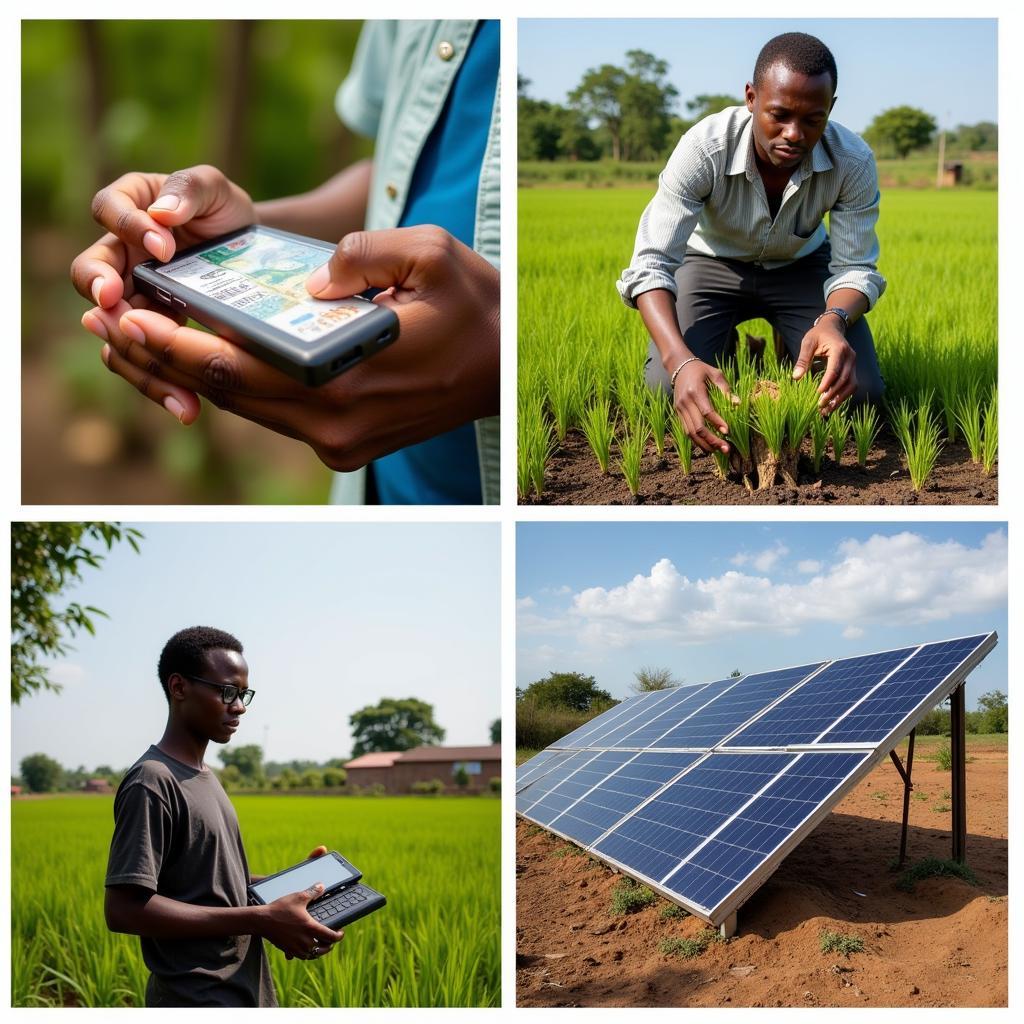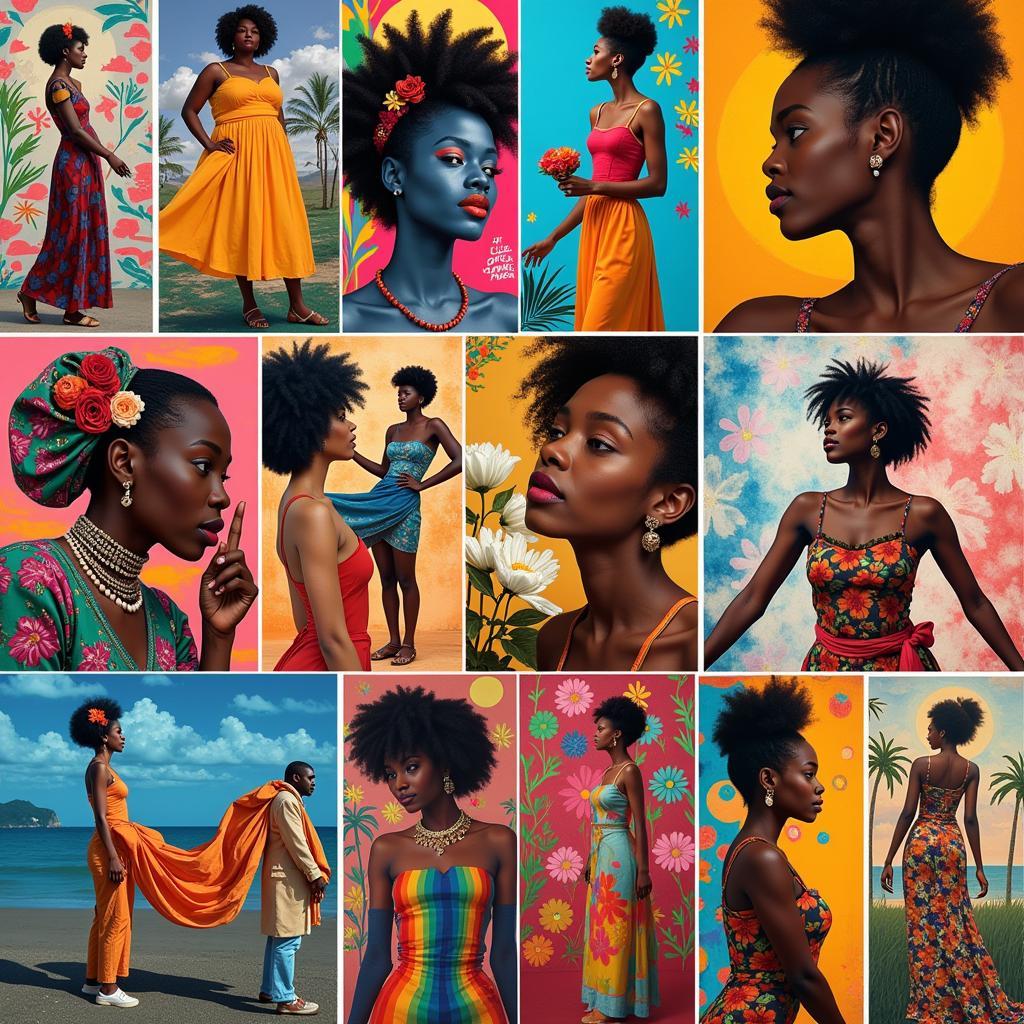Unmasking African Apocalypse Myths: Separating Fact from Fiction
African Apocalypse Myths, often portrayed in popular culture, paint a grim picture of a continent perpetually on the brink of disaster. However, these narratives often overlook the rich tapestry of resilience, innovation, and cultural diversity that defines Africa. This article delves into the complexities of these myths, separating fact from fiction and exploring the true narratives of a continent constantly evolving.
The Origins of African Apocalypse Myths: A Historical Perspective
These narratives have deep roots, often stemming from colonial-era depictions of Africa as a “dark continent” rife with savagery and disease. These biased perspectives served to justify exploitation and control, shaping global perceptions for centuries. It’s crucial to understand this historical context to deconstruct the harmful stereotypes that continue to permeate modern discourse.
The Role of Media in Perpetuating Misconceptions
Modern media, while offering a platform for diverse voices, can also perpetuate these harmful narratives. The focus on conflict and crisis often overshadows the positive developments and everyday lives of millions of Africans. This skewed portrayal reinforces pre-existing biases and contributes to a simplified, often inaccurate, understanding of the continent.
Challenging the Narrative: Stories of Resilience and Innovation
Despite the challenges, Africa is a continent brimming with innovation and resilience. From technological advancements in mobile banking to groundbreaking agricultural practices, Africans are constantly finding solutions to complex problems. These stories of ingenuity are often overlooked in the dominant narrative, but they represent the true spirit of the continent.
African Solutions to African Problems: Examples of Ingenuity
Numerous examples demonstrate African ingenuity in addressing local challenges. In Kenya, mobile money platforms have revolutionized financial inclusion, while in Nigeria, entrepreneurs are developing sustainable agricultural solutions to combat food insecurity. These innovations, driven by local knowledge and necessity, offer a powerful counter-narrative to the prevailing apocalypse myths.
 African Innovation in Technology and Agriculture
African Innovation in Technology and Agriculture
The Diversity of African Cultures: Beyond the Single Story
Perhaps the most damaging aspect of these apocalypse myths is the homogenization of Africa. The continent is incredibly diverse, with thousands of languages, cultures, and traditions. Reducing this rich tapestry to a single narrative of despair ignores the vibrant complexities of African Life.
Celebrating Cultural Riches: Language, Art, and Music
From the vibrant music scenes of West Africa to the intricate art traditions of Southern Africa, the continent boasts a wealth of cultural expression. Exploring these diverse art forms is essential to understanding the true essence of Africa and challenging the monolithic narratives that dominate popular perception.
Conclusion: Embracing a More Nuanced Understanding of Africa
African apocalypse myths are a disservice to the complexity and dynamism of the continent. By understanding the historical roots of these narratives and engaging with the diverse stories of resilience and innovation, we can move beyond simplistic portrayals and embrace a more nuanced understanding of Africa. It’s time to rewrite the narrative and celebrate the true spirit of a continent constantly evolving and adapting.
FAQ
- What are the most common African apocalypse myths?
- How do these myths impact aid and development efforts in Africa?
- What role does media play in shaping perceptions of Africa?
- How can we challenge these narratives and promote a more accurate understanding of the continent?
- What are some examples of African resilience and innovation?
- How does the diversity of African cultures challenge the single story narrative?
- What are some resources for learning more about African history and culture?
Need support? Contact us 24/7: Phone: +255768904061, Email: kaka.mag@gmail.com, or visit us in Mbarali DC Mawindi, Kangaga, Tanzania.

